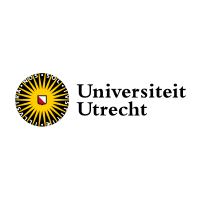
Jobs posted by Universiteit Utrecht
Mimir provides the automated job management of jobs on job boards for Universiteit Utrecht.
Latest jobs
PhD in innovative stable isotope measurements of methane and its precursors
This work will enhance our understanding of methane dynamics in rapidly changing ecosystems and contribute to improving predictive models of future methane emissions. Field sampling will focus on regions where methane cycling is still poorly constrained, particularly Arctic permafrost coasts.
As a PhD candidate, you will become an expert in isotope ratio mass spectrometry, methane microbiology and methane cycling in the environment.
1) You will develop innovative methods to measure diverse isotope dimensions for methane, as well as organic precursors, in order to trace carbon flow in methane-related ecosystems;
2) You will conduct culture experiments in controlled conditions aiming at simulating natural environments;
3) You will participate in arctic campaigns and use the methods developed to shed light on methane cycling in permafrost regions.
AcademicTransfer
1 application
0 views
18-07-2025 Universiteit Utrecht
PhD position in the field of ocean and ice dynamics
The Atlantic meridional overturning circulation (AMOC) and the polar ice sheets (Greenland and West Antarctic ice sheets) play important roles in the climate system and have all been identified as large scale tipping elements, albeit on very different time scales. While for each of these tipping elements critical thresholds remain matter of active research, they also interact with each other. In fact, the AMOC and polar ice sheets form an intricate network of multiscale systems, with interactions that can be stabilizing or destabilizing, the latter opening the possibility of cascading tipping events.
Moreover, the interaction between these large scale systems happens via other possibly nonlinearly acting subsystems such as the North Atlantic subpolar gyre (SPG) and Arctic and Antarctic sea ice cover, involving processes on smaller scales, which are often not well represented in modelling efforts focusing on the large scale tipping elements.
For this PhD position you will work on modelling the processes and feedbacks that couple the AMOC and polar ice sheets, with particular focus on sea ice and (North Atlantic) deep-water formation regions such as in the SPG. We will make use of models of different complexity up to complex Earth System models, and modelling efforts for different past periods.
A personalised training programme will be set up, reflecting your training needs and career objectives. About 20% of your time will be dedicated to this training component, which includes following courses/workshops as well as training on the job in assisting in the Bachelor’s and Master’s programmes of the department of Physics at Utrecht University.
AcademicTransfer
1 application
0 views
18-07-2025 Universiteit Utrecht
Junior datamanager
Je komt te werken bij het Institute for Risk Assessment Sciences (IRAS), een interfacultair onderzoeksinstituut van de faculteiten Diergeneeskunde en Geneeskunde van de Universiteit Utrecht. Binnen het IRAS onderzoeken we hoe omgevingsfactoren als luchtvervuiling, microplastics, pesticiden en blootstelling aan stoffen op de werkvloer de gezondheid van mens en dier beïnvloeden. We verzamelen daarbij veel verschillende typen data, zoals labbepalingen, gezondheidsdata, vragenlijsten, en data uit apps en sensoren. We werken in grote nationale en internationale consortia waarbij we te maken hebben met complexe datastromen. Daarbij streven we naar zoveel mogelijk open en herbruikbare data (FAIR), waarbij we de privacy van deelnemers voorop stellen.
Met een team van data stewards, een GIS-specialist en een data architect zorg je ervoor dat alle verzamelde data op een betrouwbare manier beschikbaar zijn voor onderzoekers. Je werkt mee aan het inrichten van een robuuste data-architectuur waarin verzameling, bewerking en archivering inzichtelijk en reproduceerbaar is. Hierbij hoort bijvoorbeeld ook het publiekelijk beschikbaar maken van de verschillende typen (meta)data die we verzamelen. De nadruk ligt in deze functie op het ontwikkelen en beheren van de infrastructuur die FAIR data mogelijk maakt. De Universiteit Utrecht heeft een actieve Research Data Management gemeenschap en een team met Research Engineers waar we mee samenwerken.
AcademicTransfer
4 applications
0 views
17-07-2025 Universiteit Utrecht
Postdoc Critical University Heritages
In recent years, universities and museums across Europe have become more attuned to their colonial entanglements and developed innovative approaches to reflect and deal with their colonial heritage, including the renaming of buildings and the decolonisation of curricula. Such steps have often, though not exclusively, been taken in collaboration with partners from former colonised countries. COLUMN brings together partners from the creative industries, seven European universities from the Coimbra network, and partner universities from across the globe to explore further how we can effectively decolonise university heritage. Through analyses of anthropological collections, botanic gardens, university campuses, and intangible heritage practices, COLUMN aims to develop policy recommendations and good practices for decolonial and inclusive collaborations around European university heritage.
As a postdoctoral researcher you will join a team of scholars from the Netherlands, Italy, South Africa and Suriname. You will contribute to two co-curated heritage interventions:
- Building on completed ethnographic and historical research, the first intervention will be an exhibit that presents the complex colonial history of physical anthropology (plaster casts) in the Dutch Indies. This will be in collaboration with other scholars (Prague, Pretoria and Bologna), an exhibition design studio, curators from the University Museum Utrecht, and funded curators from Indonesia. The aim is to develop a presentation that is both academically grounded and accessible to a broad public, inviting critical reflection and dialogue.
- In collaboration with another UU postdoctoral researcher, the Botanic Garden of Utrecht, a Surinamese artist-in-residence, an exhibition design studio and Surinamese colleagues, a heritage education intervention will be developed. Just as in the first intervention, the historical research will have been completed. This intervention will also include educational programming aimed at public engagement.
As a postdoc, you will not bear the full weight of the interventions, as they are team efforts carried out by a large team of scholars and curators. You will be primarily responsible for incorporating a critical heritage and museology perspective. You will assist in developing a new curatorial approach and visual discourse that critically addresses the coloniality of the aforementioned heritage objects and sites, and invite meaningful engagement from museum visitors and other public stakeholders.
In the first year, you will contribute to two literature surveys inventorying current curatorial practices surrounding physical anthropology collections and botanic gardens. Subsequently, based on this critical evaluation of existing practices and historical research conducted by other team members, new approaches will be developed for integration into the two small heritage interventions.
AcademicTransfer
2 applications
0 views
17-07-2025 Universiteit Utrecht
Management- en office-assistent (MOA) Faculteitsbestuur
Je werkt binnen de afdeling Bestuurs- en Beleidsondersteuning (BBO) samen met drie collega’s, waaronder een participatiemedewerker, onder leiding van de bestuurssecretaris van de faculteit. Samen met de collega’s van team BBO bied je ondersteuning aan de decaan, twee vice-decanen, de faculteitsdirecteur, de hoofden van het faculteitsbureau, de faculteitsraad en diverse commissies en overleggen. Ieder heeft een eigen takenpakket, waarbij jullie elkaar kunnen vervangen en helpen bij werkpieken en afwezigheid.
Je hoofdtaak is het bieden van ondersteuning aan de faculteitsdirecteur en het managementteam. Je werkzaamheden bestaan bijvoorbeeld uit:
- complex agendabeheer;
- notuleren van complexe vergaderingen, waarbij zowel Nederlands als Engels wordt gesproken;
- plannen en organiseren van bijeenkomsten en overleggen;
- beheren van teamsites en andere fysieke en/of cloud-omgevingen;
- administratieve ondersteuning bij oa. HR-processen
- algemene secretariële werkzaamheden als bestellingen, ontvangen bezoekers, secretariaatsmailbox, (mede) organiseren facultaire bijeenkomsten.
AcademicTransfer
0 applications
0 views
17-07-2025 Universiteit Utrecht


